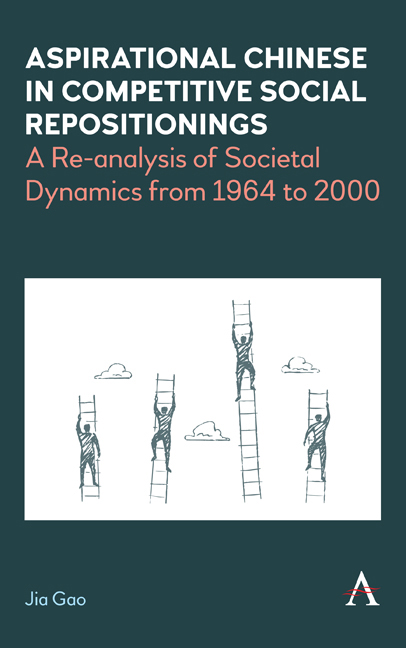 Aspirational Chinese in Competitive Social Repositionings
Aspirational Chinese in Competitive Social Repositionings Book contents
- Frontmatter
- Contents
- List of Abbreviations
- List of Figures
- List of Tables
- Preface and Acknowledgements
- One The Absence of Everyday Chinese in the Dichotomous Paradigm
- Two Rebranding the Communist Heir Narrative and the Cultural Revolution
- Three Tearing the Utopian Veil Down By the Sent-Down Youth
- Four Crying Out for Changes in the Second Half of the 1970s
- Five Battling for the Advantages Under the Dengist Political Alliances
- Six Climbing Different Social Ladders From the Mid-1980s
- Seven Filling in the Post-1989 Vacuum Left By Educated Liberals
- Eight Seizing Chances to Be Entrepreneurial in Post-1992 China
- Nine Towards a Theory of Competitive Social Repositioning
- References
- Index
Three - Tearing the Utopian Veil Down By the Sent-Down Youth
Published online by Cambridge University Press: 28 February 2024
- Frontmatter
- Contents
- List of Abbreviations
- List of Figures
- List of Tables
- Preface and Acknowledgements
- One The Absence of Everyday Chinese in the Dichotomous Paradigm
- Two Rebranding the Communist Heir Narrative and the Cultural Revolution
- Three Tearing the Utopian Veil Down By the Sent-Down Youth
- Four Crying Out for Changes in the Second Half of the 1970s
- Five Battling for the Advantages Under the Dengist Political Alliances
- Six Climbing Different Social Ladders From the Mid-1980s
- Seven Filling in the Post-1989 Vacuum Left By Educated Liberals
- Eight Seizing Chances to Be Entrepreneurial in Post-1992 China
- Nine Towards a Theory of Competitive Social Repositioning
- References
- Index
Summary
It has been widely accepted that the Cultural Revolution was the negation of the post-famine recovery approaches and actions if the personality politics between Mao and his first-line leaders can be set aside. Up to mid-1966, almost all of the newly implemented open and fair social mechanisms were criticised and rejected as the revisionist line defined by Mao and his followers. Chinese politics were once again pushed strongly by Maoists, aided by radical students, to turn to the left of the ideological spectrum. Mao's caution to never forget class struggle and to prevent the restoration of pre-1949 capitalist system unified his followers, making them realise the need to guard their interests and their social status, which they had achieved through the revolution. This was partially the reason why the radical and rebellious student group – initially formed by Tsinghua High School students – was called Red Guards. As a consequence of such political impetuses, the connection between politics and personal behaviour that was already separated to some degree in the post-famine years was once again closely connected. Many confused students had then staged violent acts of destruction in several cities, which was once proudly called the Red Terror (Chan 1982; Unger 1982).
Having demonstrated their mad political shows all over the country from the early summer to the early winter of 1966, the start of another process of negation in post-1949 Chinese history came into view. An internet writer who attended Mao's eighth grand reception of the Red Guards in Beijing wrote the following reflection: in 1967, Mao ‘had clearly disliked the Red Guards and turned to rely on various Workers’ Rebel Command Headquarters to continue with’ his Cultural Revolution (Zhu 2006, n.p.). On the other hand, an online memoir records the following vivid scene at the famous Beijing Railway Station:
I left [Beijing] at the end of December 1968, and my parents did not go to see me off. The atmosphere at the railway station that day was rather sad and miserable. In the summer of 1968, when the campaign to go to the mountains and the countryside first started, a large team of our classmates opted to go to the Great Northern Wilderness [in Heilongjiang province], and they were highly spirited, feeling like going on a revolutionary journey.
- Type
- Chapter
- Information
- Aspirational Chinese in Competitive Social RepositioningsA Re-Analysis of Societal Dynamics from 1964 to 2000, pp. 49 - 70Publisher: Anthem PressPrint publication year: 2023


